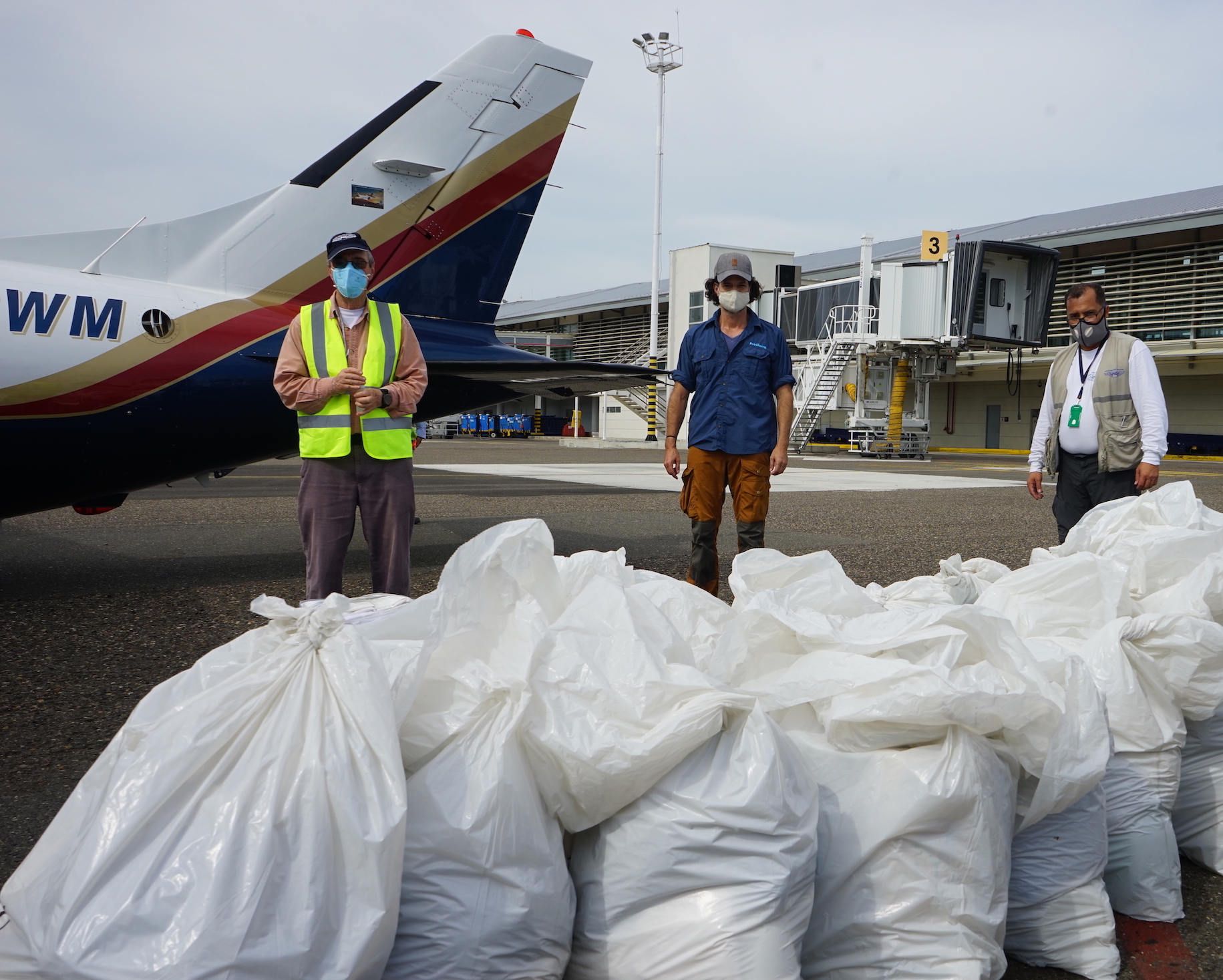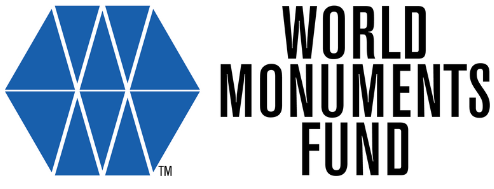In response to COVID-19, we have launched targeted campaigns in solidarity with people around our project sites.
Our first priority was supporting the Indigenous and local communities near Ciudad Perdida, Colombia, who had to isolate themselves in order to prevent infection. The Global Heritage Solidarity Fund addressed immediate community needs and future resilience.
To date, we have delivered over 42,000 lbs of food and hygiene supplies — plus 9 full PPE kits — to 320 families and health workers around La Ciudad Perdida. We continue to address their immediate needs while we work on building programs to provide lasting employment and stronger paths forward.
We sat down with Santiago Giraldo, Latin American Director at Global Heritage Fund, to discuss the challenging logistics of sourcing and delivering supplies to isolated communities in the midst of a pandemic.
…
Who is receiving food deliveries around Ciudad Perdida?
We’re delivering food and hygiene supplies to over 320 families, including Indigenous communities and campesinos [local farmers]. We’re helping the families living directly around Ciudad Perdida, and also the families of guides and park personnel who are out of work due to the national lockdown.

Why are these food deliveries necessary?
Before COVID, tourism around La Ciudad Perdida was an important part of the local economy. Tourism provided an alternate form of income for families. Otherwise, they had to clear land for growing crops or grazing cattle.
Now that the nation is locked down to slow the pandemic, Indigenous peoples and campesinos are again having to clear and prepare additional land in order to eke out a living for their families. Hunting has also increased as people seek to put food on the table.

By delivering food, we’re hoping to give families the means to survive without devastating the local environment. Protecting the natural surroundings will be crucial for recovery after the lockdown ends — but if people have to exploit the land now in order to survive, nothing will be left for long-term recovery.
How do you select food for the deliveries? Who prepares the food baskets?
Food baskets are assembled at a general store in Santa Marta following World Food Programme protocols for nonperishables. They’re meant to supplement areas where there is some food but no access to basics. Right now, the deliveries include staples such as rice, beans, lentils, corn flour, salt, sugar and cooking oil.
Our main assembly team is headed by Lucho, who has assembled over 42,000 lbs of food for delivery. He’s been doing an amazing job!

How are the supplies delivered?
After the food baskets are assembled, they are loaded on trucks and taken to the trailhead town (Machete Pelao) for dropoff to heads of family and the indigenous town of Mutanzhi. Baskets for the indigenous town are delivered to one person representing the community who then proceeds to store them until families come down to pick them up a few days later.
I supervise delivery along with Michele Galli of Environomica, one of our integral partners, and heads of the Juntas de Acción Comunal and indigenous town of Mutanzhi. PPE is delivered directly to the health posts, including one at the trailhead and one at Mutanzhi.

Photo by Santiago Giraldo (pictured at center)
How do you minimize risk to the communities?
Lots of precautions are taken to decontaminate all supplies before and during deliveries. The supplies are disinfected in Santa Marta as they are being consolidated into individual packages. Once they are loaded into the trucks, the trucks and delivery people are disinfected before they can enter the isolated areas and once delivered, food parcels are again disinfected.
Delivery personnel are kept to a minimum, so only 3 or 4 people move supplies and only 3-4 persons receive them at the trailhead. We all use masks and maintain social distancing, thus minimizing the possibilities of contagion.

Why are so many precautions taken to disinfect supplies?
The Indigenous communities are isolated and vulnerable to infection, with few health care facilities or personnel that can provide primary care in case of severe symptoms. They are at an even higher risk of sickness — and if one person falls ill, the whole community is in danger of contracting it.
Indigenous communities throughout the Americas have faced numerous epidemics ever since the arrival of European settlers. They have survived in the past, and now with Covid, by applying social distancing and isolating themselves.
How will communities recover and support themselves in the future?
Along with our partners ProSierra and Environomica, we are developing medium- and long-term projects aimed at economic diversification, including agroforestry and organic cotton in the Buritaca area.
For example, ProSierra signed an agreement with the Food and Agricultural Organization for continued seed sharing and organic cotton experimentation with Indigenous families.
Environomica is ramping up sapling production via its tree nursery located in the Buritaca watershed (co-funded by Global Heritage Fund) to meet demand from campesinos wishing to establish agroforestry areas on their farms.

Photo by by Alessandra Fuccillo, courtesy of Environomica Onlus
In short, everyone is invested in improving livelihoods for campesino and Indigenous families in the area. Global Heritage Fund has worked in the area since 2008, ProSierra since 1986, and Environomica since 2005. We are committed to long term projects with deep impact.
…
As essential needs are met, our work shifts to income diversification and leveraging local partnerships to build resilient, dignified futures.
YOU can help us meet critical needs and create sustainable paths forward. $35 can provide one family food basket, $80 can supply PPE to five families, and donations of any size can make a difference!

